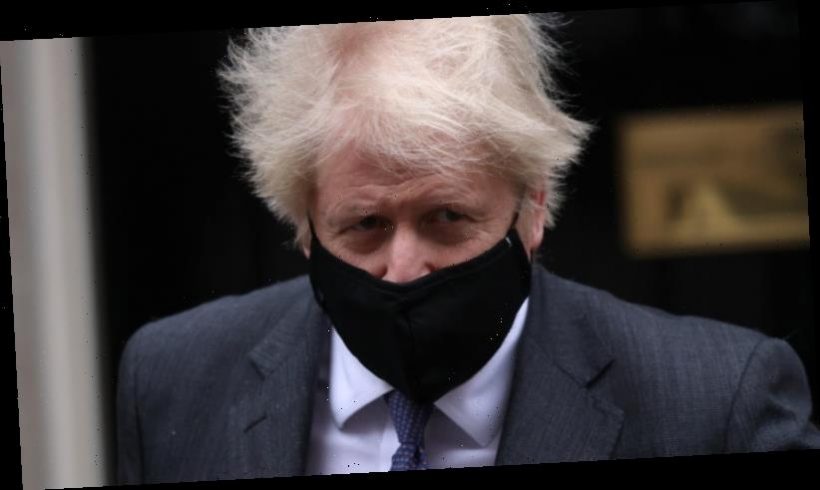London: Britain suffered its worst day in the pandemic, with more than 1800 deaths recorded in 24 hours, as Boris Johnson's chief scientific adviser warned some hospitals now look "like a war zone."
The record daily toll takes the total number of people who have died within 28 days of a positive test in the UK to 93,290. Almost 40,000 patients are now receiving treatment in British hospitals.
England is in its third national lockdown and similar measures are in place across the UK, but while the restrictions have started to bring infection rates down, officials say the death rates and pressures on the National Health Service will continue to grow.
British Prime Minister Boris Johnson leaves 10 Downing Street.Credit:Getty
"This is very, very bad at the moment, with enormous pressure," Patrick Vallance, the government's chief scientific adviser, told Sky News when asked about the situation in hospitals. "In some cases it looks like a war zone."
Johnson reinforced the point. "It's true that it looks as though the rates of infection in the country overall may now be peaking or flattening but they're not flattening very fast and it's clear that we must keep a grip on this," the premier told reporters on Wednesday.
Ministers have previously said the lockdown could be eased gradually once about 15 million people who are most vulnerable to the disease have received vaccines, which the government wants done by mid-February.
Lab Technicians are manufacturing the Astro Zeneca Covid-19 vaccine at Oxford Biomedica, where they are manufacturing the bulk Covid-19 vaccine for AstroZeneca in Oxford, England. Credit:Getty
After three days in which the vaccination rate slowed, the number of people receiving their first shots picked up again with 343,163 getting injections on January 19. More than 4.6 million people in the UK have had their first doses.
Vallance also said some restrictions may be needed next winter — including wearing masks, especially indoors.
Any delay to lifting the lockdown is likely to cause political trouble for Johnson, who faces discontent among lawmakers in his Conservative Party over the damage the measures are doing to the economy. Steve Baker, a senior rank-and-file member of Parliament, warned last week it would be a "disaster" if pandemic restrictions last until spring.
Vallance suggested the government should heed the lessons from the pandemic. The evidence shows "you've got to go hard early and broader if you want to get on top of this," he said. "Waiting and watching doesn't work."
He also said "stricter" quarantine measures for travellers last January and February might have helped to prevent the import of the disease, but by March "we had so many cases I don't think it would have made much difference."
The government's top scientist struck an upbeat tone about the Pfizer/BioNTech vaccine, despite early analysis from Israel suggesting it has a much lower efficacy after the first dose than previously thought. If confirmed, that would raise questions about the UK's strategy to delay a second dose in order to reach more people for their first.
But Vallance pointed to trial data showing the vaccine could be 89 per cent effective after one dose — from 10 days after the injection. He said that while it "probably won't be as high as that in practice," it also won't be as low as the Israel analysis suggested. Scientists will study data from Israel and the UK in the coming weeks, he said.
Bloomberg
Most Viewed in World
Source: Read Full Article


